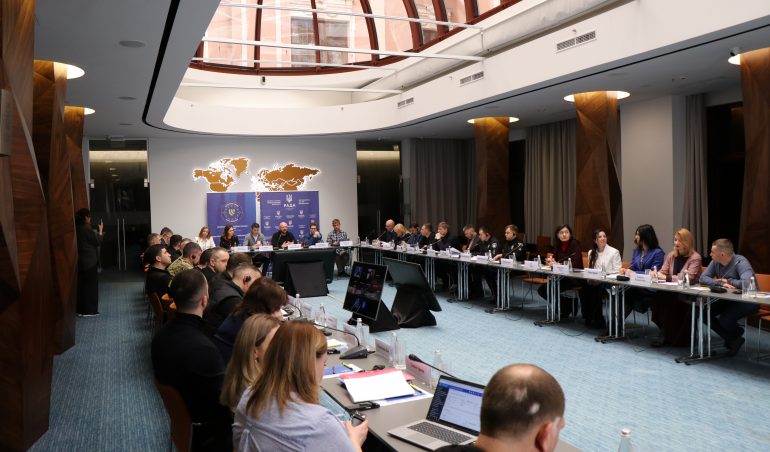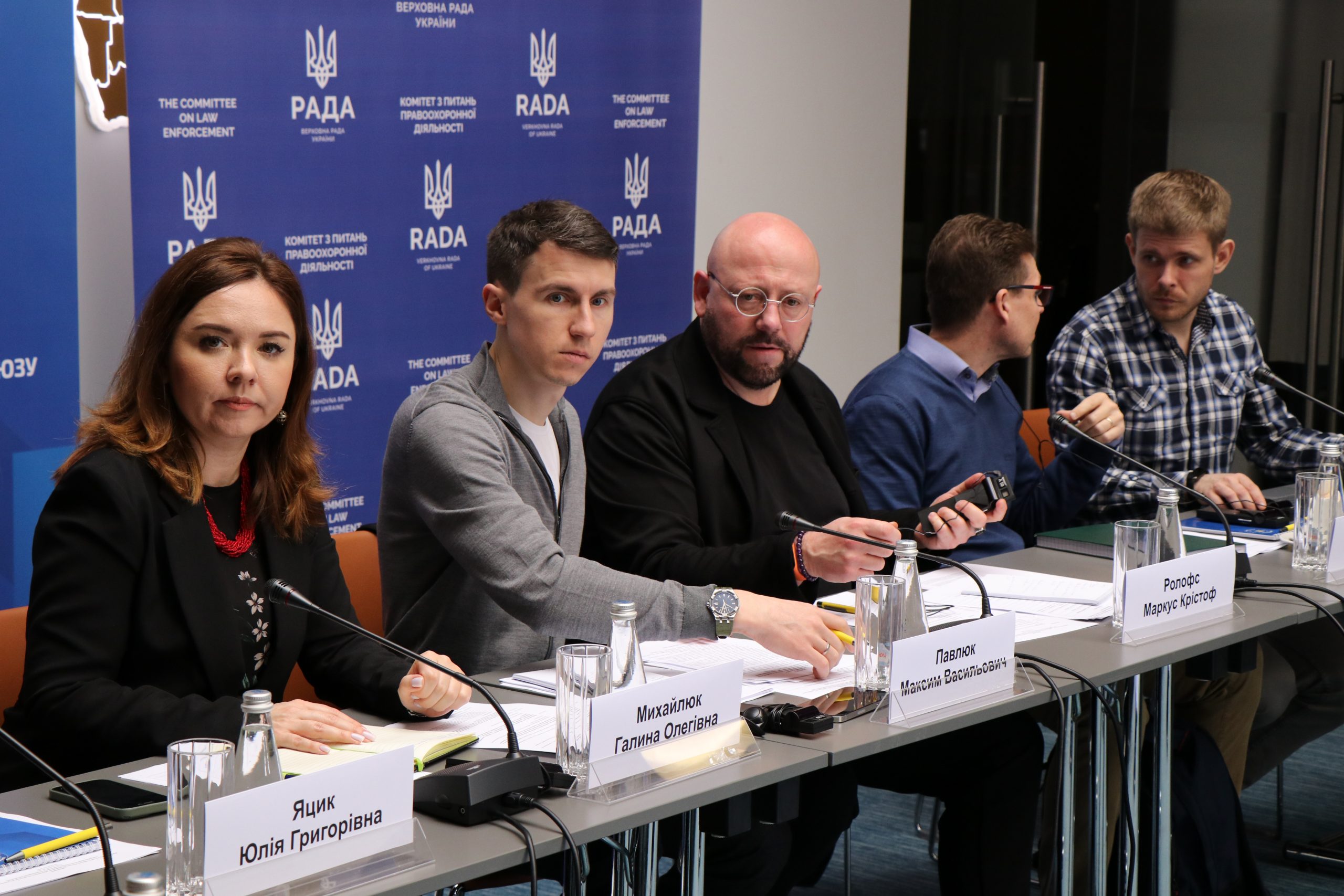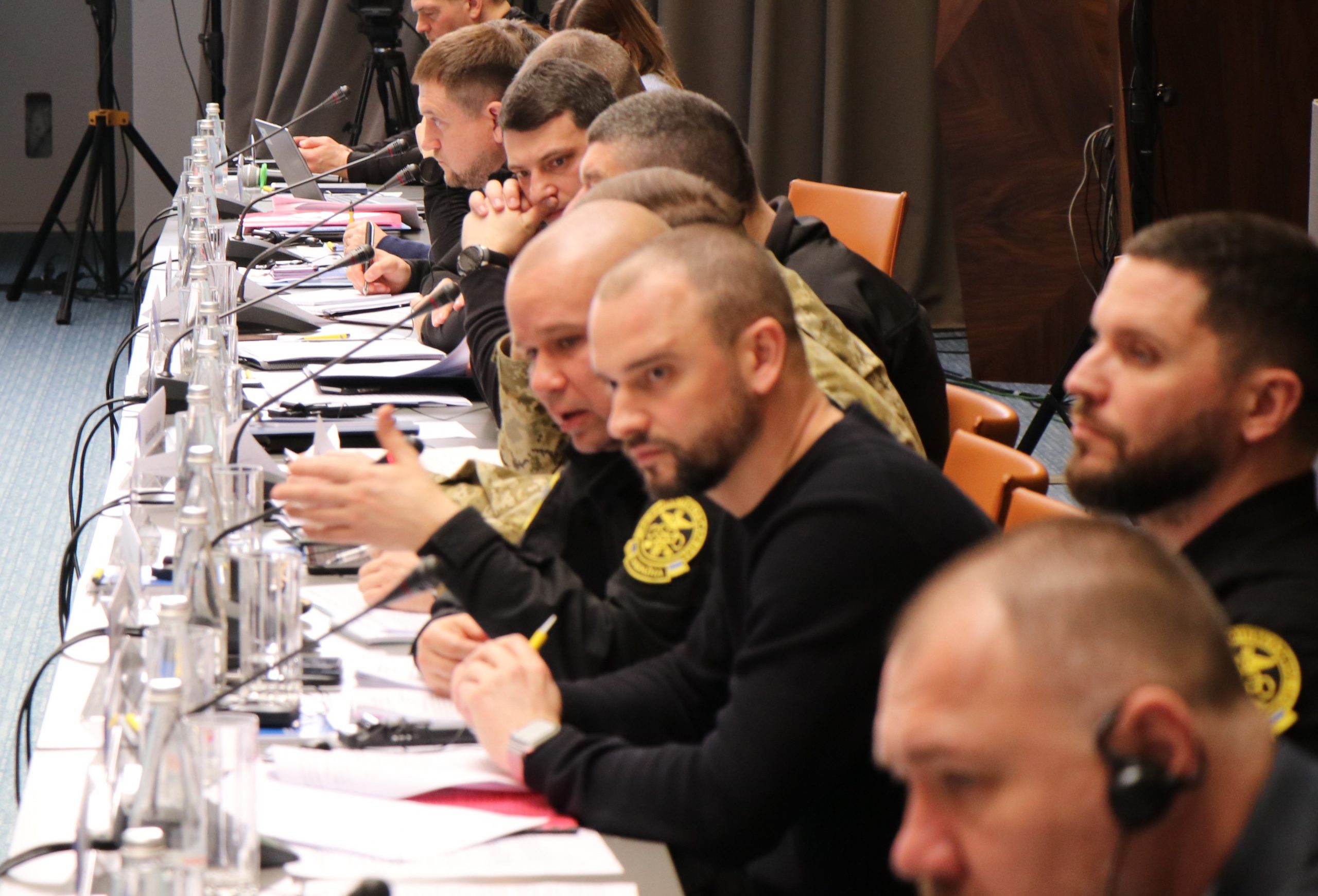Ukraine Advances Anti-Corruption Reforms with EU Support
April 03, 2024
Ukraine is advancing its anti-corruption measures, striving to align its legislation with European Union standards. An essential action was the amendment of its Criminal Code and Criminal Procedure Code last December, criminalising smuggling, effective from 1 July 2024.
As part of implementing the parliamentary oversight function, the Committee of the Verkhovna Rada on Law Enforcement, with the support of the EU Advisory Mission to Ukraine (EUAM), recently conducted a two-day working visit to Lviv.
The visit’s agenda was comprehensive. On the first day, 27 March, members of the parliament (MPs) held an off-site meeting at the premises of the Lviv State University of Internal Affairs, mainly to discuss the challenges of the implementation of the new provisions on smuggling criminalisation. MPs were briefed by the representatives of the Prosecutor General’s Office, the Security Service of Ukraine, and the Bureau of Economic Security on the current state of play and their readiness to detect and investigate smuggling-related crimes after 1 July 2024.
In addition to the committee meeting, the MPs explored the training facilities at the Lviv State University of Internal Affairs and visited the Territorial Service Centre 4651 of the regional service centre of the Ministry of Internal Affairs across Lviv, Ivano-Frankivsk, and Zakarpattia. They also received an overview of the “112 Service” communication centre in Lviv, a project that enables citizens to access all emergency services via a single number – 112, streamlining emergency responses and fostering inter-agency communication.

On the second day of the visit, 28 March, a round table on the criminal responsibility for crimes related to humanitarian aid was held. This session brought together judges, regional prosecutors and representatives of the Security Service of Ukraine, the State Customs Service, the National Police of Ukraine, the State Bureau of Investigation, the Western Regional Directorate of the State Border Guard Service, the Lviv Regional Military Administration, the Territorial Office of the Bureau of Economic Security in the Lviv Region. They discussed caseloads and the provision of operational support and intelligence in criminal proceedings related to the misuse of humanitarian aid for profit.

Tamaz Demetradze, a judge at the Uzhhorod City District Court in Zakarpattia Region, stressed the urgency of addressing humanitarian aid misuse to preserve Ukraine’s reputation. Marcus Rolofs, EUAM Lviv Field Office’s Advisor on Rule of Law, echoed this sentiment, underscoring reputation as a national security concern.
Enhancing Ukraine’s capacity to counter organised crime, including cross-border ones, remains one of the EUAM’s priorities. Therefore, the Mission supports its partners from the Verkhovna Rada Committee on Law Enforcement in implementing their parliamentary control functions, effectively responding to possible legislative gaps, and initiating necessary draft laws that will reform law enforcement bodies.
Sergii Ionushas, Chair of the Committee, thanked EUAM for the Mission’s significant support and noted the importance of such joint visits for gaining insight into local law enforcement operations.
Galyna Mykhailiuk, the President’s Representative in the Verkhovna Rada/Deputy Chair of the Committee on Law Enforcement, remarked on the link between the performance of law enforcement and international aid. Success in these reforms, she noted, is crucial for Ukraine’s continued support.
This is already the fifth regional visit that EUAM has facilitated for the Verkhovna Rada Law Enforcement Committee as part of a long-standing cooperation, focusing on diverse issues within the mandate of the Mission and the priorities of the Rada Committee. Previously, such visits were held to Mariupol and Odesa in 2021, as well as Dnipro and Kropyvnytsky in 2023.


